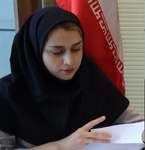U.S. president Trump on Friday renewed Iran sanctions relief once again and at the same time warned that it was the last time that he renewed the Iran sanctions relief and asked the Europeans to work on changes to the JCPOA.
To shed more light on the issue we reached out to Nader Entessar Professor and Chair of Department of Political Science and Criminal Justice, University of South Alabama.
Following is the full text of the interview:
What is your general assessment of Trump’s latest approach toward the JCPOA?
Trump's latest decision to extend his administration's approval of U.S.'s commitments under the JCPOA while threatening to withdraw from the agreement in if changes are not made to it was vintage Trump. President Trump's statement included its usual dose of bluster, threats and hyperbole while keeping everybody in limbo as to what his administration's next move will be.
What changes is Trump after?
The two most important changes Trump wants to make to the JCPOA are 1) eliminating the so-called "sunset clause" in the nuclear agreement to make Iran's nuclear obligations permanent, and 2) to include a clause in the agreement prohibiting Iran from developing ballistic missiles. In other words, Trump wants to weaken Iran's deterrence capabilities and weaken its defense posture.
Considering the EU, Russia and China support to the JCPOA and Iran’s opposition to any changes to the nuclear agreement, how realistic is Trump’s requests? Will the EU and other signatories to the deal give up and adhere to his requests?
Although it does not appear that the 5+1 JCPOA signatories favor Trump's demands at this time, it is not inconceivable to construct a scenario in which some European countries would cave to Trump's demands and put pressure on Iran to agree to revise the JCPOA. We have already seen overt and covert attempts to compel Iran to accede to Trump's demands on ballistic missiles. Iran has to be extremely careful not to fall into another trap.
Are European countries able to resist Trump’s requests?
They can resist Trump's demands for a short period of time, but if push comes to shove, the European countries will cave in. Europe has long ceased to act as an effective counterpart to the U.S. in international affairs.
How serious should this threat be taken?
The mercurial and unpredictable nature of Trump's decision-making calculus makes it difficult to predict his course of action. But it is always best if one looks at the worst case scenario and prepare for the worst alternative. In other words, one needs to hope for the best but prepare for the worst.
What will be the consequences of the possible withdrawal of Trump from the JCPOA for the US? What do you think will be Iran’s possible reaction?
For the US, Trump's withdrawal from the JCPOA will further damage the already tattered diplomatic reputation of the country and will signal a heightened era of dangerous tensions and conflicts in the Persian Gulf region and beyond. It will demonstrate to the international community that the signature and words of the US presidents do not mean anything and that Washington cannot be trusted in international negotiations to uphold its commitments. I am not sure what Iran's possible reaction will be in the event of the US withdrawal from the JCPOA. Hopefully, those in charge of Iran's foreign policy have already prepared a commensurate response beyond issuing condemnatory statements.
What can Iran do to reduce the US pressures?
Iran must intensify its diplomatic pressure on Europe to go beyond issuing statements of support for the JCPOA. Iran must make it very clear to Europe that it cannot speak from both sides of its mouth and start taking concrete and measurable actions to uphold its commitments under the nuclear agreement. The Trump administration will continue to play its cat and mouse game as long as the other parties to the nuclear agreement are willing to play a game with Iran.
Interview by: Lachin Rezaian


























Your Comment